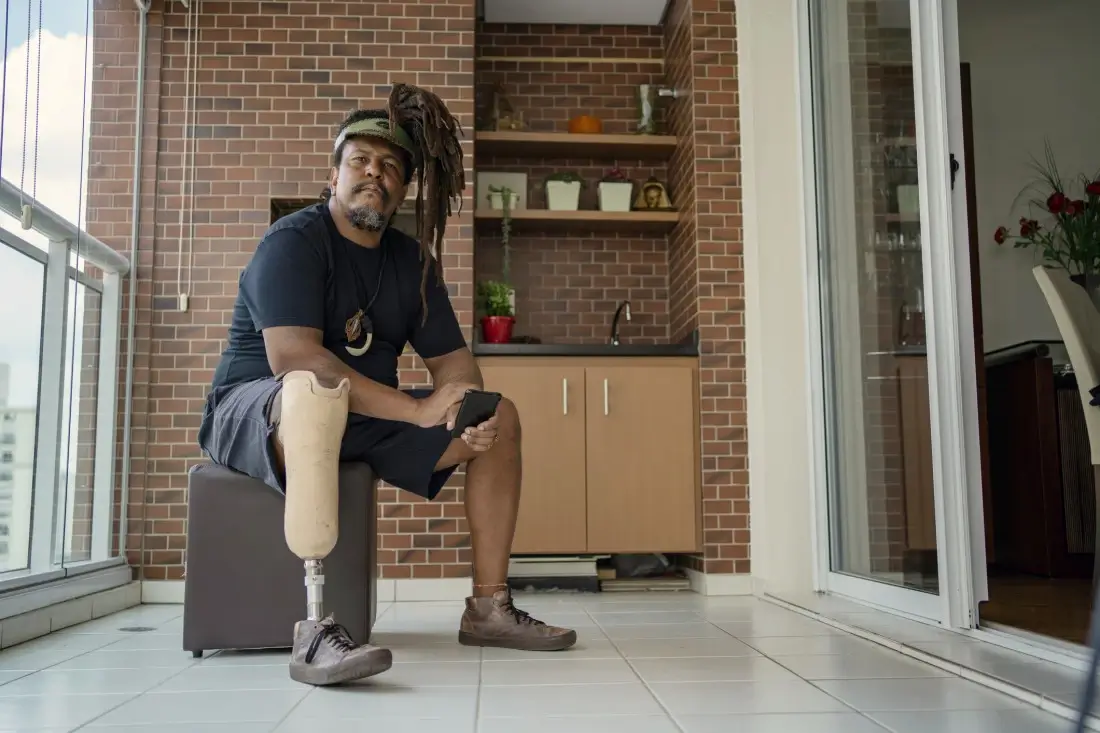Important: We updated this article in March 2024 to include recent examples and current Social Security Administration policy. Disability and social media are definitely not a match made in heaven. These days, however, social media has become a way of life for many people. We use it to keep up with family and friends, to learn about new businesses and products, and find fun events where we live.
But anyone who draws SSD benefits should know that disability and social media might be at odds with each other.
Most Americans Don’t Trust Social Media Companies to Protect Their Privacy
Privacy issues associated with social media have made headlines for some time now. Employers sometimes check people’s profiles to get a real glimpse at someone’s character. Other folks think that social media makes the world a less safe place for children.
In fact, 71% of Americans say they are concerned or somewhat concerned about issues of privacy and social media. This number is a pretty large increase from 64% just two years earlier. Maybe even more importantly, 81% of people surveyed say they’re uncomfortable with how social media companies use the personal information they collect about users. Another 80% believe they’ll use it in ways not originally intended.
Applying for Disability and Social Media: 4 Tips to Keep in Mind
1. The easiest way to ensure social media doesn’t interfere with your disability benefits is to not use it at all. That doesn’t just mean Facebook — it also includes platforms like Instagram, X (Twitter), TikTok, Bluesky, Threads, YouTube, and LinkedIn.
2. It’s smart to not use LinkedIn even if you have active profiles on other social networks. Why? Because Facebook, Instagram, and most others are for social interactions. LinkedIn, on the other hand, is solely focused on finding a job or expanding your professional network. Your mere presence there might signal to investigators that you’re online looking for work even while you collect benefits.
3. If you decide to participate on social media, be smart about it. Lock down your profile as much as possible so only trusted friends and family can see your posts. Don’t allow other accounts to tag you in pictures, and never accept friend requests from people you don’t personally know.
4. Make sure search engines like Google or Bing won’t show your social media accounts or online activity in search results. You can do this by going to your privacy settings and turning off that feature.

Does the SSA Always Look at Social Media Accounts?
Always? No. But it’s possible an investigator could find whatever you put online and use it against you. This is true whether you’re filing for SSD benefits or already collect them and need a Continuing Disability Review (CDR).
The Social Security Administration (SSA) has an official policy on investigating disability and social media accounts.
At first glance, this policy implies that they only look at social media accounts in flagged or potentially fraudulent cases. However, the Administration itself describes its observation of social media accounts as “ongoing.” In other words, if it’s possible to disqualify claims based on social media use, there’s a chance it may happen.
The danger here isn’t just that they can see your social media accounts. The danger, really, is in how almost everyone uses these platforms. Rather than showing how life truly is, most people carefully curate their posts to show only happier moments. Celebrating with family at a birthday party, dancing at a wedding, hitting a hole-in-one while golfing with friends.
And it’s exactly these types of events that can put your disability claim in danger. They might say if you can dance at a wedding, you can still work. Or if you can swing a golf club, you can work in an office.
What they won’t see (because social media doesn’t capture every moment) is how you feel – physically, mentally – in those photos. They can’t see your excruciating leg or shoulder pain, or that you put down crutches or a brace seconds earlier.
And remember: You may not even post any pictures of yourself online, but someone else might. Well-meaning family and friends can share photos that include you. Unfortunately, those images may tell an imaginary story that could invalidate your disability claim.

Advice for People on Workers’ Compensation
The best advice to follow when it comes to disability and social media is to not post anything at all. That remains true even if the disability you get comes from workers’ comp, your employer’s benefits plan, or your state. And the only way to prevent others from tagging you in photos is to have no social media at all.
Even if you “clean up” your profile (i.e., delete all your old posts, including photos that might raise red flags about your disability payments), the internet remembers. They live on the social media platform they were originally shared on forever.
Sadly, workers’ comp adjusters can also employ shady tactics to do their jobs. Even if they don’t look at your social media profiles, they might hire a private investigator to dig deeper online. Every time they come across a photo where you look healthy and active, they can use that against your case.
Social Media and Disability Do’s and Don’ts
If you choose to stay on social media, changing your privacy settings is probably the most important thing to do:
- Make sure no one else can tag you in photos.
- Don’t let anyone see your profile or photos except for friends.
- Make sure no one can use your current phone number or email address to search the platform and find you.
You should also delete old posts that show you doing anything that could put your claim at risk. Change your Facebook privacy settings to limit old posts so they no longer appear on your wall.
Some things you should never post on social media are just good common sense. Here are a few examples:
- Posts that mention any illegal activity, including illicit drugs
- Sharing information about your disability claim
- Photos of you engaging in physical activities you say you can no longer do on your disability application (even if they’re old!)
- Personal information others can steal or use against you, like your home address, driver’s license, phone, or Social Security number

Examples or Social Media’s Role in Catching Disability Fraud Cases
There are many examples of the Social Security Administration catching fraud cases through social media posts.
In 2014, police arrested 100 people for Social Security Disability Insurance (SSDI) fraud. Investigators saw Facebook posts from defendants in that case riding on jet skis, motorcycles, and performing karate moves.
In 2022, a judge sentenced a U.S. Navy veteran to 27 months in prison and ordered him to pay $429,568.09 in restitution. This ruling came after the court determined he exaggerated the extent of his vision loss. In addition to agent surveillance and video footage, attorneys used the vet’s social media posts to show him performing activities his claim said he could not do.
Another man in New York collected more than $200,000 in disability benefits after he fall while working as an electrician. Since the defendant collected disability while also running a limousine company and entering bodybuilder competitions, a judge found he defrauded the government. And it wasn’t his social media profile that proved problematic in this case, either. Instead, his wife posted photos of him working out on her Instagram account saying how proud of him she was.
See if You May Qualify Before You Apply for Benefits
Worried you’ll go months or years with no income after you apply for disability benefits? It’s a real risk that impacts many people. However, an attorney can tell you for free whether you’ll qualify for Social Security disability before you file. But that’s not the only reason to talk to a disability attorney about your case.
Having an attorney file your Social Security disability application makes you 3x more likely to receive benefits within 6 months.
If your claim doesn’t succeed, you pay your lawyer $0 for professional claim help. And if you win benefits, you only pay one small fee after your award comes through. What have you got to lose?
Click the button below today to connect with free expert Social Security disability claim help by phone:
Get Your Free Benefits Evaluation
Lisa Allen is a writer and editor who lives in suburban Kansas City. She holds MFAs in Creative Nonfiction and Poetry, both from the Solstice Low-Residency Program in Creative Writing at Pine Manor College. Prior to becoming a writer, Lisa worked as a paralegal, where she specialized in real estate in and around Chicago.

















